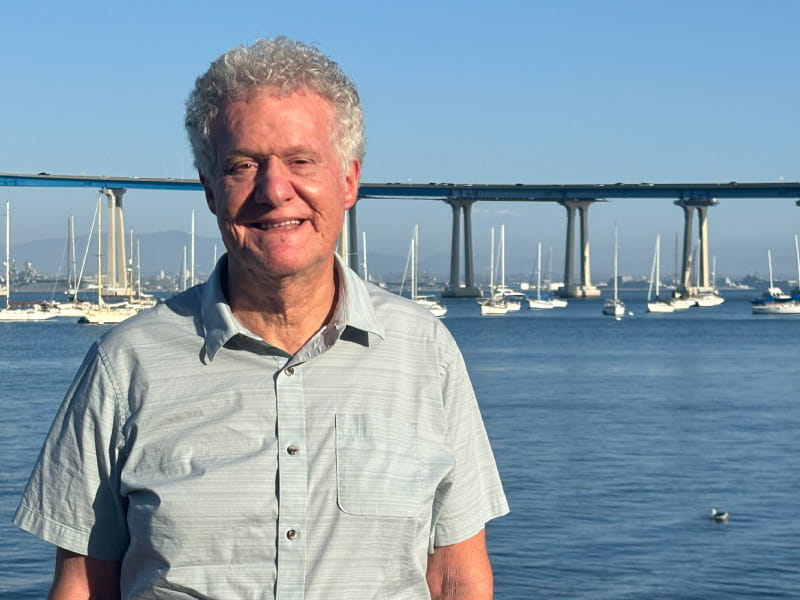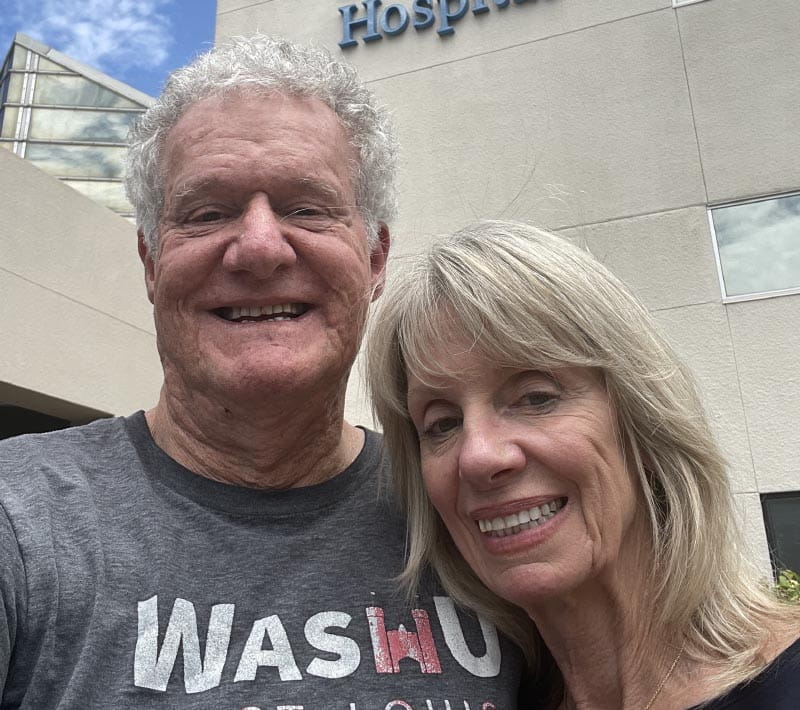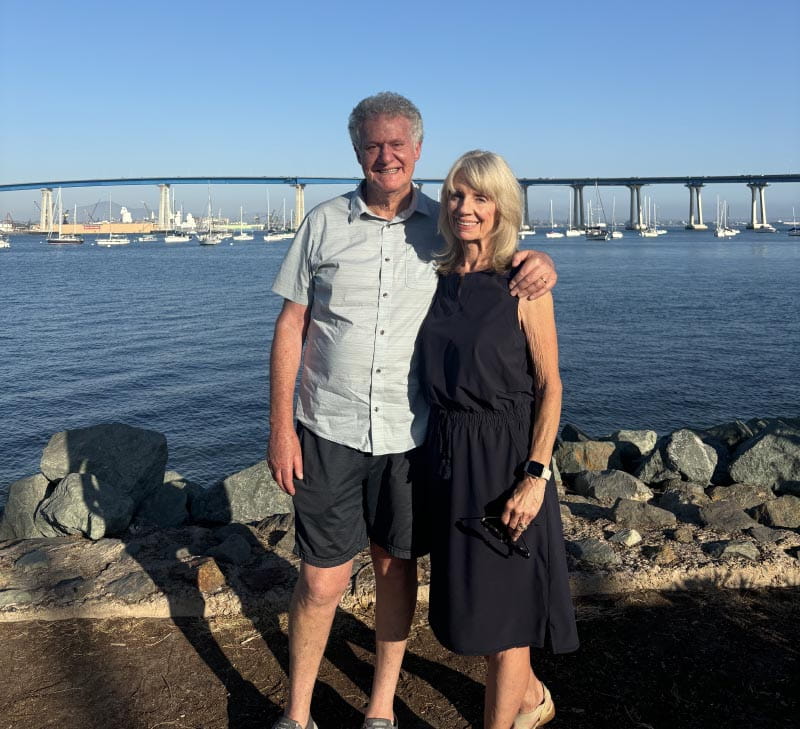Retired journalist fell asleep doing a crossword. He woke up amid a stroke.
By Deborah Lynn Blumberg, American Heart Association News

Avid local politics follower and retired journalist Paul Krueger had a full day. He sat in on a San Diego City Council meeting, swam in the Coronado Bay, then returned to city hall to participate in an afternoon session.
At home, he and his wife, Meg Bouher, had salads for dinner. Then Krueger started working on a crossword puzzle in bed.
Bouher turned on the news, then switched to the Olympics. Krueger might want to watch, too, she thought. She went to find him. He was lying down, his chest rising and falling, the puzzle and pen at his side. But his body lay in a strange, twisted position.
Bouher, a social worker who once worked in a neurology rehabilitation unit, touched her husband's shoulder. He woke up laughing. That oddity was followed by a few more.
He had the sensation of being "spaced out." Everything looked hazy, like he had a thin layer of petroleum jelly over his eyes.
When he stood up, he wobbled. His right hand was numb. He couldn't tie the drawstring on his sweatpants into a simple bow. When he tried to slip his right foot into a sandal, the foot wouldn't move.
"Are you all right?" Bouher asked.
Krueger, who was 71, opened his mouth to speak. What he wanted to say was: "Yeah, I'm fine. Just a little groggy from that nap." But his words came out as nonsense. When Bouher looked at him in confusion, Krueger raised his hands and forced a weak smile.
Bouher called 911. She told the operator: "I think my husband is having a stroke."
As paramedics treated Krueger, they asked for his driver's license. More undistinguishable words came out. "Does your husband usually talk like that?" the EMT asked.
Bouher shook her head, no. It was quite the opposite. As a freelance writer and editor after retiring from NBC 7 San Diego as a field producer, Krueger often good-naturedly corrected Bouher's grammar.
In the emergency room, Krueger kept trying to communicate that he hadn't drank enough water, and he was probably dehydrated. He thought it was important to impart since he had his colon removed years earlier because of ulcerative colitis, a chronic inflammatory bowel disease. His body needed more water to compensate.
But no one could understand him. Krueger felt frustrated and panicked. Questions streamed through his head: Will I ever recover my speech? Is this my future? Will I miss tomorrow night's soccer game? Will speech therapy help me?
Krueger had a CT scan. It didn't show any blockage or damage to his brain. Still, the neurologist on call believed Krueger was having an ischemic stroke, one in which plaque buildup or a blood clot blocks blood flow to the brain. In Krueger's case, the cause appeared to be a clot. He got a dose of clot-busting medication.
The impact was almost immediate.
Within minutes, the feeling in Krueger's right hand returned and his speech began to improve.
Within an hour, he was speaking clearly and in full sentences. As he learned more about his stroke, he imagined himself as a wilted plant and the clot-busting medicine the water that perked him up.
Krueger later wrote: "Droopy as a plant's leaves may be, as long as they're not dead, a good watering will bring them back to life and restore their luster. Our brain cells work similarly; they can survive a temporary lack of oxygen and will again 'perk up' again when the blockage clears and blood flow is restored."
Doctors told him his otherwise good health – he had a healthy blood pressure, wasn't overweight and didn't smoke or drink excessively – helped his recovery.
Krueger spent two days in the intensive care unit. He filled those hours by typing out the details of his story he could later share and use to educate others about stroke symptoms and the importance of immediate care.

A few days after arriving home, Krueger was back to swimming, gardening, reading and writing. Then he and Bouher went on a scheduled trip to Santa Fe, New Mexico, for a week of opera, art, dining, short hikes and long drives.
After the trip, he returned to the gym twice a week to maintain his strength and keep his heart healthy. Bouher, for her part, is considering retiring, in part prompted by Krueger's stroke.
"This could happen to anyone at any time," she said. "I want to spend more time together. Maybe this is the time to enjoy life."
Now, Krueger is happily back to his daily crossword puzzle – and to gently correcting Bouher's grammar. "I'm just so fortunate," he said. "If my wife hadn't realized something was wrong and woke me, it could have been too late."

Stories From the Heart chronicles the inspiring journeys of heart disease and stroke survivors, caregivers and advocates.





